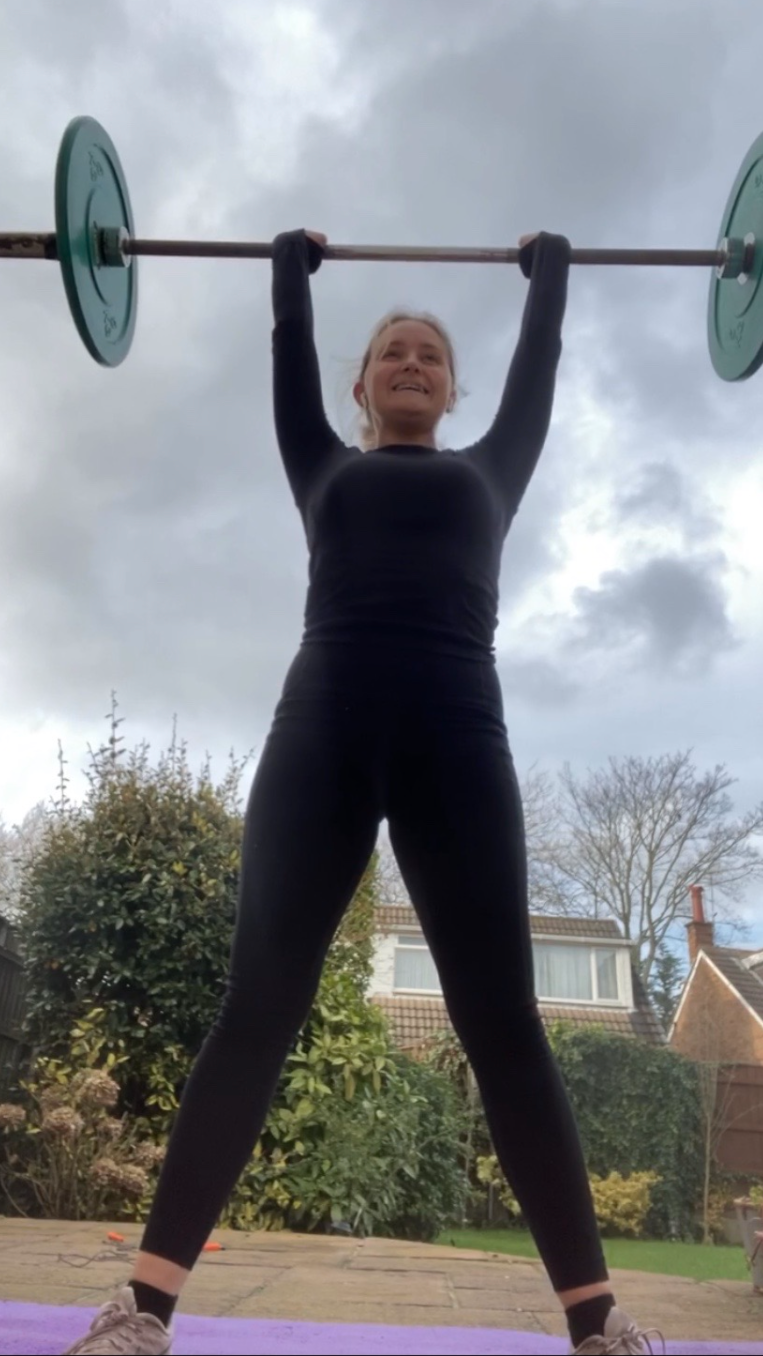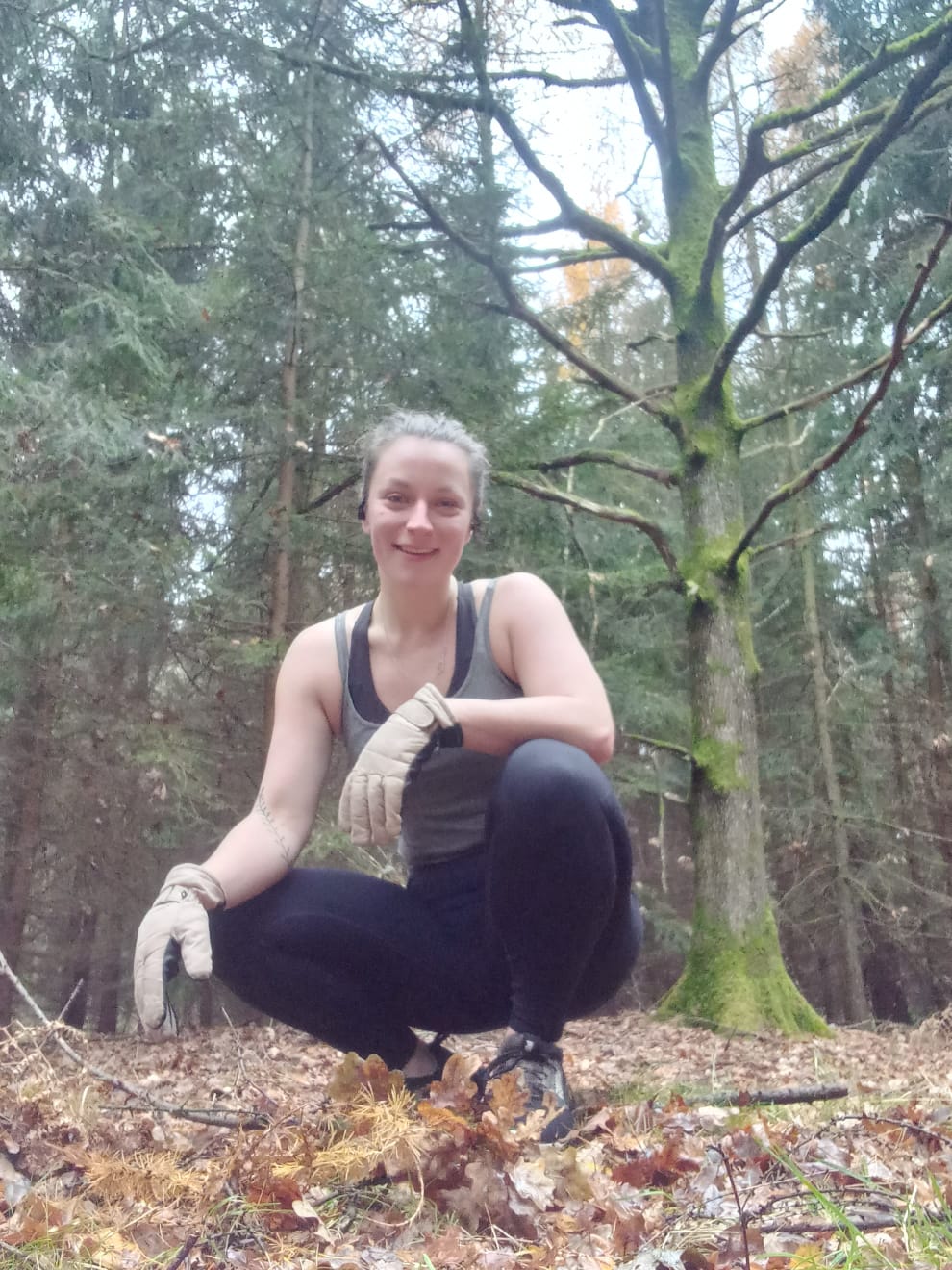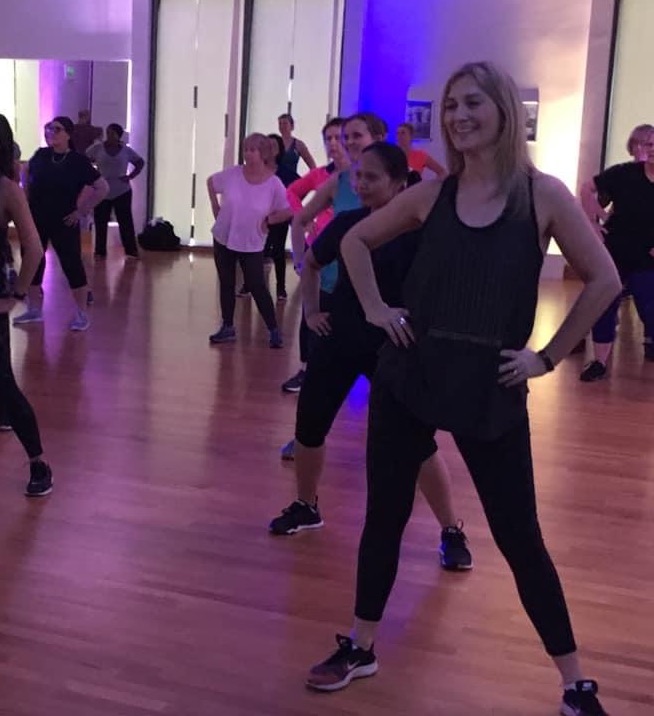When it comes to exercise, we still tend to focus on the physical outcomes, but there’s so much more to gain from being active, as these nine women prove. Below, they share what gets them moving – and it has nothing to do with changing their bodies.
The physical benefits of exercise are well documented. We know it improves heart health, reduces the risk of serious disease and keeps our bones and joints healthy. But as a society, we don’t always pay attention to just how powerful movement can be for our mental health and wellbeing.
For years, women have been bombarded with the message that the sole purpose of exercise is to lose weight or change our bodies in some way. Certainly, growing up, I never thought of exercise as something to enjoy. It was simply an activity to endure in order to reach a physical goal.
Thankfully, things are, slowly but surely, changing and there’s increasing focus on the psychological and social benefits of exercise. “There are so many great reasons to move our bodies beyond the physical health benefits,” confirms consultant psychologist and co-founder of The Chelsea Psychology Clinic, Dr Elena Touroni.
“When you exercise, your body releases feel-good hormones, endorphins and serotonin, which give you a natural energy boost and promote positive feelings in the body,” she tells Stylist. “Your body also becomes better at managing the stress hormone cortisol.”
You may also like
Exercise and stress: the best exercise to help you handle stress and boost a low mood
It’s not just an immediate high you get from exercise, evidence shows physical activity is an effective prevention strategy for depression. A 2018 study led by King’s College London found that people who exercise regularly are 16% less likely to develop depression while another paper found that habitual exercise reduces our peak cortisol levels.
“Exercise can also help with clarity of thought,” continues Dr Touroni. “Many people find it helps break cyclical thoughts and releases pent-up energy, helping them feel more clear-headed and ready to give their best in their relationships and at work.”
According to Dr Touroni, the increase in energy you get from being active can help you feel stronger in yourself and more confident to take on any challenges that life throws at you.
This certainly rings true with me. Going for a morning run leaves me feeling positive and productive for the rest of the day, I love lifting weights with my music blasting because I get in the zone and forget about everything else, and I find getting out into nature for a long walk always helps when my mood is low.
There’s so much to gain from exercise that’s totally unrelated to physical appearance, and this is different for each and every one of us. Ultimately, it’s about moving your body in a way that you enjoy and that makes you feel good.
To highlight the many non-aesthetic benefits of regular physical activity whether that’s swimming, lifting or walking, we asked nine women to share their motivation for exercise. From better sleep to being part of a community, here’s what they had to say.
Swimming clears the mind

Clare, 41
“Nothing does my brain more good than a swim. As a chronic overthinker, I struggle to switch off and my mind often races with what I’ve got to do, worries and random ideas. Putting my head in the water, then pushing off, stroke, stroke, stroke, breathe and repeat, gives me something else to focus on. The repetition of swimming lengths helps my brain quieten down and I find it very meditative.
“I get a different kind of joy from zumba classes – they’re so loud and fun and full of camaraderie. Where I go in south London, it’s a diverse mix of (mostly) women and there’s a big range of ages, body shapes and backgrounds. Everyone sweats profusely, messes up the choreography and does what they can, whatever their ability. It’s so welcoming and inclusive. Being cheered on and encouraged to keep going by my new friend that I met at the beginning of the class is addictive and heartwarming.”
Exercise as a social activity

Alice, 22
“I love the social side of exercise, especially when working from home in the winter. I spend a lot of time by myself so going to the gym is often the first time I speak to people each day. I train at a CrossFit box so I’m used to seeing the same friendly faces and coaches who know me. It’s a really crucial part of my routine and helps me look after my mental health.
“Being strong and fit is also amazing in a practical sense. It makes me feel safer when I’m walking home alone, knowing I can run a long distance and have some kind of strength to protect myself. Being able to do other heavy things like carry shopping bags home with ease or move furniture is also really empowering.”
Moving to boost mood

Nikita, 27
“I used to hate working out because I was only doing it to make my body smaller and therefore make me more accepted. Also, the form of exercise I was choosing was based entirely on external factors rather than what I actually enjoyed. If a news article said running was good for you, I’d run, even if I hated every second of it. If a documentary said CrossFit was the best way to lose weight quickly, I’d give it a go.
“When I realised how messed up my relationship with exercise had become, I promised myself that I would only do workouts that I enjoyed from now on. I also stopped counting steps or calories and instead, started logging how I felt emotionally afterwards. I quickly realised I felt happier, calmer and was bursting with endorphins and energy. I felt less tired and I was more productive throughout the day. I even wanted to be more social and I started using my long walks to call friends I hadn’t spoken to in a long time. I suffer from anxiety but working out helps me feel less anxious both in the moment and in general.”
Dancing to improve concentration

Beth, 33
“I’ve always used exercise as a way to spark creativity and improve my concentration. I go to dance classes weekly, and on my daily walks with the dog, I come up with the best ideas for the book I’m currently writing. I also use exercise to manage the chemical imbalance in my brain which I recently found out is ADHD – it gets rid of excess energy and helps me to concentrate better.”
Exercising to release frustration

Kat, 29
“When I’m feeling super energetic, I love doing a spin class. I really push myself and max out on the bike – it can be incredibly invigorating, especially when the teacher has great music taste. I also do body combat classes, which involve a lot of punching, kicking and elbowing the air. I find it’s a great way of releasing pent up anger and general frustration.
“If my mood is low and I don’t feel so energetic, I go for a run because I know that moving my body helps me feel better. When the weather isn’t so good, it can be hard to get out but once I do, it’s totally worth it – I embrace the elements and start to feel full of life. I either go at a slow, meditative pace or break into uphill sprints if I feel like my body wants to do that. By the time I get back, I’m full of endorphins. My body is relaxed, my brain is calm and I’m ready to start the day.”
Running to sleep better

Zesha, 19
“I’ve only started getting into exercise recently and I feel it’s really turned my life around. University is really stressful so it can be difficult to get a good night’s sleep. I’ve found that since I’ve started working out more regularly – which is either a run, indoor biking or some light resistance training – I’m sleeping so much better and I feel more ready for whatever challenges the next day brings.
“Exercise has also helped me to develop a good daily routine and given me a sense of structure. By doing a workout at the same time each day, I plan my day around that and I’m able to be more productive.”
Intuitive movement for self-care

Olimata, 23
“I used to punish myself with gruelling HIIT workouts or long runs in the early hours of the morning, even though, deep down, I knew I hated them. I had fallen into the tight trap of rigidity, thinking I had to move in a certain way because… well, an influencer online told me to.
“Over the years, I’ve worked really hard to nurture a positive relationship with movement and one of my biggest inspirations for this has been following Tally Rye on Instagram, who shares so much brilliant information about intuitive movement.
“Now, my relationship with movement is so different and in the best way possible. I use exercise as one of many tools in my self-care kit to help benefit my life. Whether it’s an intentional walk in nature, a calming yoga class or trying something new like boxing, I allow myself to listen to what both my body and mind need in those moments and lead with that. I really notice how much clearer my mind feels when I implement movement practices that I enjoy and that feel empowering into my routine. I share quite openly online my experience with anxiety, and I find movement helps me channel a build-up of anxious energy.
Moving to music to chase away anxiety

Sophie, 54
“Dance classes at my local leisure centre have been the key to building fitness into my life regularly. Because I love them so much, I don’t have to force myself to go. For the first time, I understand the high you get from the endorphin release of exercising, and I really think fitness has helped with my anxiety. I’ve learnt that exercise makes you feel better inside and not only when you’re actually doing it – if I miss a couple of days I can feel the irrational anxiety creeping back.
“The music side of dance classes is also really important to me – when I was younger, I often used music to improve my mood but you don’t so much when you’re older because you just don’t have the time. I think that this daily dose of banging music really helps me too!”
Finding community in running

Michelle, 28
“My favourite thing about running is the community aspect. As a Black woman, being part of a diverse community that tackles issues such as inclusion and representation in running is really important. When life gets tough or the weather isn’t so great, my running community is what keeps me going. We train, laugh and challenge the status quo together.
“Running also reminds me to put myself first. I love my career, but like most people, prioritising my wellbeing when working in a corporate environment can feel like a game of tug of war. When I started running, because I was so passionate about it, I found myself carving out time on my lunch breaks and after work to go for a run. It has helped me enforce healthier boundaries at work and have a better work-life balance.”
Looking to meet other like-minded fitness fans? Come join us over on the Strong Women Training Club.
Images: authors’ own
Source: Read Full Article
